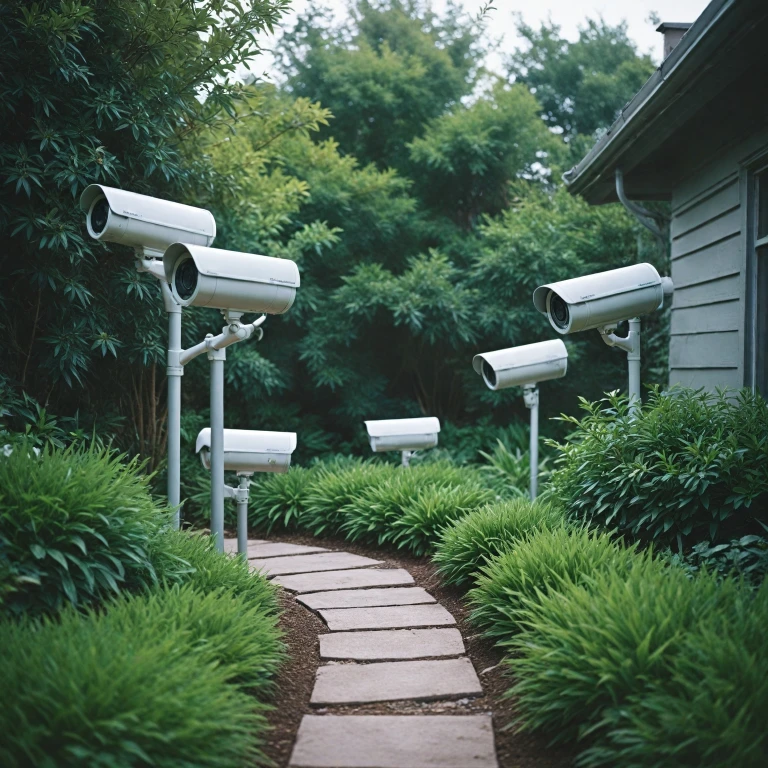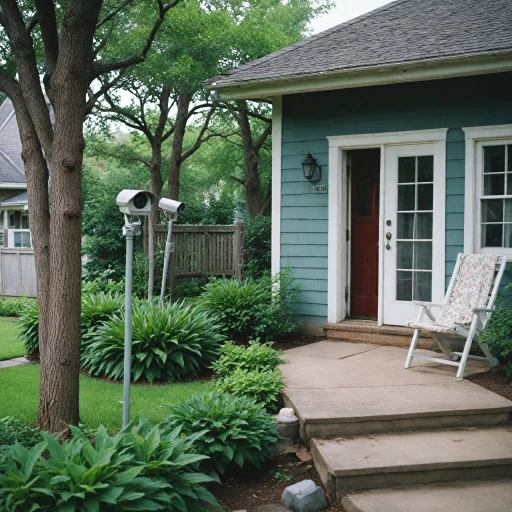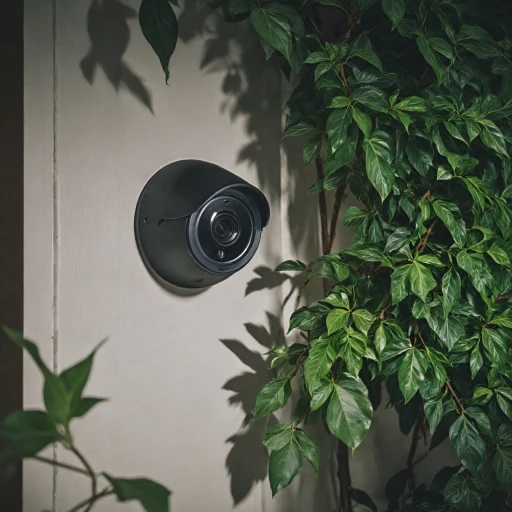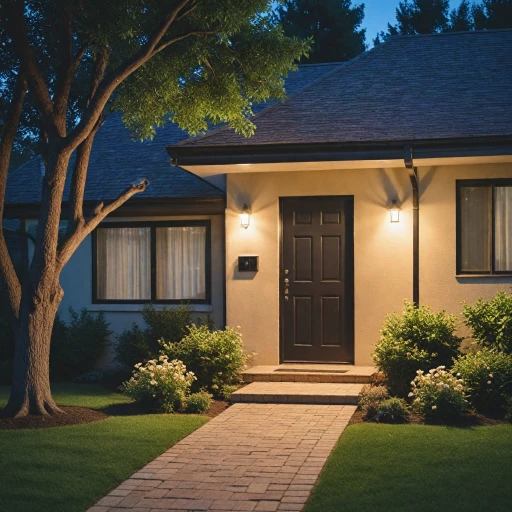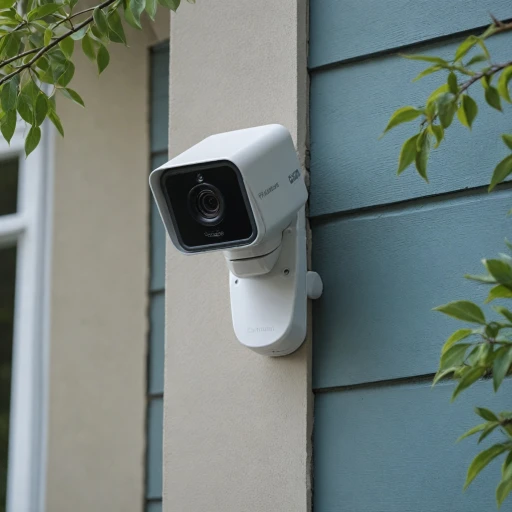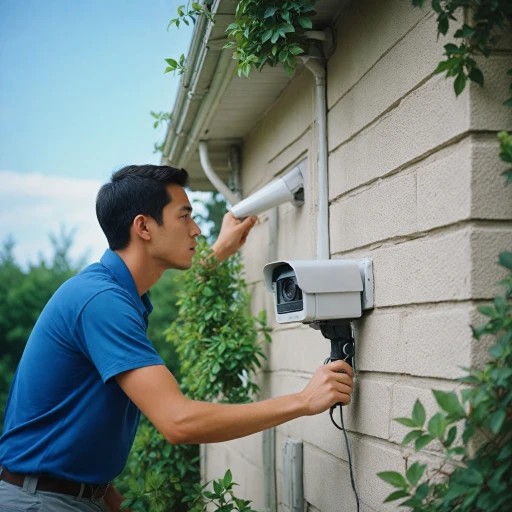
Understanding Wireless Security Cameras Without Wi-Fi
Unpacking Wireless Cameras Without Wi-Fi
When it comes to home security, one might assume that the best solutions always require an internet connection. However, there are wireless security cameras that operate without Wi-Fi, offering effective surveillance without the need for network infrastructure. Understanding how these cameras function is key to selecting the right system for your home. Wireless security cameras that do not rely on Wi-Fi largely operate through local storage solutions or alternative connectivity methods. For instance, many of these cameras are equipped with microSD cards or NVR (Network Video Recorder) systems to store footage directly. This approach ensures that crucial footage is at hand even in the absence of internet access, making it a reliable security option. Cameras without Wi-Fi often sustain themselves using battery power, eliminating the need for wires and offering flexibility in outdoor placement. Additionally, features such as motion detection and night vision make these cameras capable of delivering high-quality video surveillance in various environments. The understanding of this concept can be further enhanced by exploring notable benefits associated with security cameras that don't require internet. This knowledge can guide you towards a more informed decision that aligns with your specific security needs.Benefits of Using Non-Wi-Fi Security Cameras
Advantages of Opting for Non-Wi-Fi Security Cameras
Security cameras that operate without the need for Wi-Fi connectivity offer a range of benefits, especially for those who seek reliable monitoring solutions in areas with limited internet access. These systems utilize various technological approaches, ensuring security is maintained without the constant need for a wireless network.
Some key advantages include:
- Improved Reliability: Cameras work even during internet outages, offering continuous surveillance without interruptions. This ensures you never miss important footage, regardless of your internet connection status.
- Enhanced Security: With no dependency on Wi-Fi, there's a reduced risk of hacking or unauthorized access through wireless networks, making your security system more robust.
- Flexibility in Installation: Non-Wi-Fi security cameras are ideal for outdoor and remote locations where internet service is questionable or unavailable. These battery-powered and wireless cameras provide flexibility, allowing for deployment in diverse environments.
- Local Storage Options: Many wireless cameras without internet capabilities utilize local storage solutions such as a microsd card or nvr systems, ensuring footage retention without additional cloud storage fees.
- Cost-Effective: By eliminating the need for monthly internet or cloud services, non-Wi-Fi security cameras can be more economical long-term.
For those considering this type of security system, exploring home security cameras that don’t require Wi-Fi is a step forward in making an informed choice fitting unique requirements.
Challenges and Limitations
Navigating the Drawbacks of Wireless Security Cameras Without Wi-Fi
Setting up security cameras that function without the need for Wi-Fi might seem like the perfect solution for those seeking a more discreet setup, but it's essential to weigh the pros and cons carefully. Despite their numerous advantages, these cameras are not without their challenges and limitations. Here are a few key considerations:- Limited Remote Access: One of the main drawbacks of cameras that don't rely on Wi-Fi is the limited opportunity for remote viewing. Many users appreciate the ability to check their camera footage while away from home, which becomes challenging without internet connectivity. Instead, these systems often require physical access to the video storage device, such as a local NVR or microsd card.
- Complex Setup Requirements: Although some wireless security systems boast easy installations, configurations involving non-Wi-Fi setups can be more cumbersome. Wired connections or reliance on proprietary protocols might not be straightforward for everyone, which can deter some users from opting for these solutions.
- Storage Constraints: Without the option of cloud storage, these cameras rely heavily on local storage solutions. This can impose limitations on recording duration and footage retention, especially when working with battery-powered or wire-free systems that require frequent manual changes of their microsd cards.
- Dependency on Alternative Connectivity: While avoiding Wi-Fi dependency, these cameras sometimes utilize cellular or radio frequency connections, demanding a sim card setup. This can incur additional costs and may not always provide the same level of stability as traditional wireless networks.
Types of Non-Wi-Fi Security Cameras
Exploring Different Types of Non-Wi-Fi Security Cameras
When considering security cameras that operate without Wi-Fi, it's essential to understand the various types available. Each type offers unique features and benefits, catering to different security needs. Here's a closer look at some popular options:
- Battery-Powered Cameras: These wireless security cameras are ideal for locations without easy access to power outlets. They rely on rechargeable batteries, making them versatile for both indoor and outdoor use. With motion detection capabilities, they can conserve battery life by recording only when activity is detected.
- Local Storage Cameras: Cameras with local storage options, such as microSD cards, provide a reliable way to store footage without the need for internet connectivity. This feature ensures that your video footage is accessible even if the internet is down, offering peace of mind.
- Cellular Cameras: These cameras use a SIM card to connect to cellular networks, allowing them to operate without Wi-Fi. They are particularly useful in remote areas where internet access is limited. Cellular cameras often come with cloud storage options for added convenience.
- NVR-Based Systems: Network Video Recorder (NVR) systems are comprehensive security solutions that connect multiple cameras to a central recording device. While they don't require Wi-Fi, they do need a wired connection to the NVR, making them suitable for larger properties.
Each type of camera system has its own set of advantages and potential drawbacks. When choosing the best security cameras for your needs, consider factors such as power source, storage options, and the specific areas you need to monitor. This will help ensure that your security system is both effective and reliable, even without internet connectivity.
Installation and Maintenance Tips
Setting Up Non-Wi-Fi Security Cameras for Optimal Performance
When it comes to installing wireless security cameras that don't rely on Wi-Fi, there are several important factors to consider ensuring optimal performance. Here's a guide to help you get started:- Power Source: Determine whether your security camera requires a constant power source or operates with a battery. Battery-powered cameras offer the flexibility of wire-free installation, but you must monitor battery levels frequently. For a camera system installed in a permanent outdoor location, wired systems or solar panels can provide a reliable source of power.
- Storage Solutions: Select the appropriate storage option for your cams. Options include local storage methods like microSD cards or a network video recorder (NVR) system. Ensure your chosen option aligns with your intended video surveillance storage capacity.
- Placement Considerations: Position your cameras strategically to maximize coverage and motion detection capabilities. Pay attention to areas with high traffic or valuable property that require enhanced security measures. Additionally, for outdoor cameras, ensure they are protected from harsh weather conditions.
- Opt for Motion Detection: Cameras with built-in motion detection can provide footage only when necessary, saving valuable battery and storage space. This is particularly useful for capturing relevant security events.
Choosing the Right Camera for Your Needs
Factors to Consider When Selecting Your Security Camera
Choosing the right security camera system that operates without Wi-Fi involves several considerations. Here’s a guide to help you make an informed decision:
- Purpose and Location: Determine whether you need the camera for indoor or outdoor use. Outdoor cameras should be weather-resistant and equipped with features like night vision and motion detection.
- Power Source: Consider if you prefer a battery-powered camera or one that connects to a power source. Battery-operated cameras offer flexibility in placement but require regular charging or battery replacement.
- Storage Options: Decide between local storage using a microSD card or an NVR system, and cloud storage. Local storage is often more secure and free from recurring fees, while cloud storage offers remote access to footage.
- Video Quality: Look for cameras that provide high-resolution video to ensure clear footage. This is crucial for identifying details in security incidents.
- Connectivity: If you’re opting for a camera without internet, ensure it has a reliable alternative like a SIM card slot for cellular connectivity.
- Additional Features: Consider features like motion detection, color night vision, and two-way audio, which can enhance the functionality of your security system.
Evaluating Your Security Needs
Assess your specific security needs to choose the best camera system. For instance, if you require a wire-free setup, prioritize wireless cameras that work without internet. If continuous monitoring is essential, a camera with robust local storage or a reliable NVR system might be ideal.
Research and Reviews
Before making a purchase, research different models and read reviews from reputable sources. Platforms like Amazon can provide user feedback, helping you gauge the performance and reliability of various security cameras.
By carefully considering these factors, you can select a security camera system that effectively meets your needs and enhances your home security.

